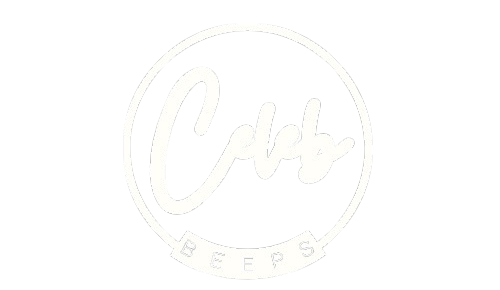You’re scrolling through wellness forums at 2 AM. Your baby finally fell asleep after hours of fussing. You’ve read about ashwagandha’s legendary stress-busting powers, and heaven knows you need relief. But one question stops you cold: is ashwagandha safe while breastfeeding?
Postpartum exhaustion hits American mothers hard. The wellness industry promises quick fixes through adaptogens like ashwagandha. Yet when you’re nursing, every supplement becomes a minefield of uncertainty. This article cuts through the confusion with science-backed information about ashwagandha breastfeeding safety, helping you make informed decisions for yourself and your baby.
Can You Take Ashwagandha While Breastfeeding?
Here’s the truth: medical experts generally advise caution. The American Pregnancy Association and most lactation consultants recommend avoiding ashwagandha during breastfeeding due to insufficient safety data. This isn’t about fear-mongering—it’s about protecting nursing mothers and their infants from unknown risks.
What Medical Experts Currently Recommend
Healthcare providers approach ashwagandha breastfeeding with the precautionary principle. The FDA doesn’t regulate herbal supplements the way it does medications. La Leche League International suggests breastfeeding mothers avoid herbs without established safety profiles. Lactation herb research remains frustratingly sparse.
Clinical trials systematically exclude pregnant and nursing women. Researchers can’t ethically expose developing babies to untested substances. However, this absence of data doesn’t equal safety—it means we’re operating in the dark regarding potential risks to infants.
The Research Gap on Ashwagandha During Lactation
Why don’t we know more? Maternal health research faces massive ethical hurdles. Scientists can’t experiment on nursing mothers when potential side effects might harm babies. Animal studies exist, but they don’t translate perfectly to humans. Traditional Ayurvedic medicine offers centuries of anecdotal use, yet modern science demands controlled trials we simply don’t have.
Nursing moms deserve better data. Until comprehensive studies emerge, healthcare providers must err on the side of caution when discussing this adaptogenic herb with lactating women.
When Breastfeeding Mothers Consider Ashwagandha
Postpartum life brings crushing challenges. Sleep deprivation destroys your mental clarity. Anxiety spikes unpredictably throughout the day. Hormone fluctuations leave you feeling unlike yourself. Postpartum support often feels inadequate, pushing desperate mothers toward natural adaptogen solutions.
The stress-relieving properties of ashwagandha sound perfect for new parents. Cortisol regulation could theoretically help with the constant fight-or-flight mode. Yet when you’re feeding infants, your body chemistry directly affects theirs through breast milk.
Understanding Ashwagandha
Before weighing safety, let’s demystify this ancient remedy. What exactly makes ashwagandha so popular in postpartum wellness circles?
What Is Ashwagandha? The Ancient Adaptogen Explained
Withania somnifera—that’s ashwagandha’s scientific name. Traditional Ayurvedic medicine has employed this shrub for over 3,000 years. The Sanskrit name literally means “smell of horse,” referring both to its odor and the belief it imparts horse-like strength.
Ayurvedic practices classify it as a rasayana, essentially a rejuvenating tonic. Modern wellness culture calls it an adaptogen—substances that help your body adapt to stress. Think of it as a biological thermostat, theoretically keeping your stress response balanced rather than spiraling out of control.
How Ashwagandha Works in Your Body
The adaptogenic herb influences your hypothalamic-pituitary-adrenal (HPA) axis. This system controls your stress response through cortisol production. Ashwagandha’s active compounds, called withanolides, interact with GABA receptors in your brain. GABA acts like a natural tranquilizer, promoting calming effects.
It also affects thyroid function—crucial information for new mother care since postpartum thyroid issues affect many women. Typical doses range from 300-600mg of standardized extract daily. However, these dosages apply to non-nursing adults, not breastfeeding mothers.
Common Forms and Preparations
You’ll find ashwagandha in multiple formats:
- Capsules (standardized extracts like KSM-66 or Sensoril)
- Powder (whole root or extract for smoothies)
- Tinctures (alcohol or glycerin-based liquid extracts)
- Teas (less concentrated, whole plant preparation)
Quality varies dramatically between brands. Third-party testing matters because supplement warnings about contamination are real concerns. Look for USP or NSF certification when evaluating any postpartum supplement.
Proven Benefits in Non-Nursing Adults
Research on general populations shows impressive results:
| Benefit | Evidence Strength | Typical Results |
| Stress reduction | Strong | 28% cortisol decrease |
| Anxiety relief | Moderate-Strong | Significant anxiety score improvements |
| Sleep quality improvement | Moderate | Better sleep onset and duration |
| Cognitive function | Moderate | Enhanced memory and focus |
| Energy boost | Moderate | Reduced fatigue markers |
But here’s the critical question: do these benefits transfer safely to nursing mothers and their babies? We simply don’t know.
Safety Considerations for Breastfeeding Mothers
Benefits sound miraculous. Yet safety considerations must dominate every discussion about ashwagandha breastfeeding.
How Herbs Transfer Through Breast Milk
Your body produces milk through a complex filtration process. Compounds from your bloodstream pass into milk based on molecular size, fat solubility, and protein binding. Small, fat-soluble molecules transfer most readily—and withanolides fit this profile.
The dose matters tremendously. Your baby receives a fraction of what you consume, but their tiny bodies metabolize substances differently than yours. What seems harmless to you might overwhelm an infant’s developing system.
Specific Concerns with Ashwagandha and Lactation
Thyroid interaction tops the concern list. Ashwagandha can stimulate thyroid hormone production. Postpartum wellness already involves hormonal chaos—adding thyroid disruption could trigger serious complications in mother and baby.
Traditional Ayurvedic medicine contains conflicting information. Some texts warn against use during lactation. Others suggest it supports milk production as a lactation herb. This contradiction highlights our insufficient understanding of herbal safety in nursing contexts.
The sedative properties raise another flag. If ashwagandha’s mood enhancement and relaxation benefits transfer through milk, could they cause excessive drowsiness in infants? Babies need to wake regularly for feeding. Anything suppressing this natural rhythm poses danger.
What We Know About Infant Exposure
Newborn livers and kidneys aren’t fully developed. They process medications and herbs far less efficiently than adults. Premature infants face even greater vulnerabilities. The younger your baby, the more cautious you should be about any herbal medicine or postpartum supplement.
Theoretical risks include:
- Immune system interference
- Neurological development effects
- Digestive system reactions
- Unknown long-term developmental impacts
Red Flags: When to Absolutely Avoid Ashwagandha
Health precautions demand you skip ashwagandha if you have:
- Thyroid disorders (hypothyroidism or hyperthyroidism)
- Autoimmune conditions under treatment
- Diabetes (blood sugar interactions possible)
- Upcoming surgery within two weeks
- Current sedative medication use
- Ragweed or nightshade allergies
- Any pregnancy (separate from breastfeeding concerns)
These contraindications represent serious health risks that professional consultation can help you navigate.
The Importance of Timing and Duration
The first 4-6 weeks postpartum are most critical. Your milk supply is establishing, and your baby is most vulnerable. Risk assessment suggests this period demands maximum caution with any herbal adaptogens.
As babies mature, their systems handle exposures better. However, this doesn’t greenlight ashwagandha use—it simply changes the risk profile slightly. Short-term supplementation carries different concerns than long-term daily use for childbirth recovery.
Potential Side Effects
“Natural” doesn’t guarantee harmless. Here’s what might happen with ashwagandha breastfeeding.
Side Effects in the Breastfeeding Mother
Common adverse effects include:
- Digestive upset, nausea, or diarrhea
- Drowsiness and excessive sedation
- Headaches and dizziness
- Thyroid function changes (labs shifting unexpectedly)
- Blood sugar fluctuations
- Drug reactions with postpartum medications
These health warnings apply even without considering your baby’s exposure through milk.
Possible Effects on Nursing Infants
Babies might experience:
- Unusual fussiness or irritability
- Excessive sleepiness affecting feeding schedules
- Digestive symptoms like loose stools
- Unknown long-term developmental effects
The terrifying truth? We don’t know enough to predict all possible outcomes. Breastfeeding care demands erring on the side of caution.
Drug and Supplement Interactions
| Substance | Interaction Type | Concern Level |
| Thyroid medications | Amplified effects | High |
| Antidepressants (SSRIs) | Increased sedation | Moderate-High |
| Blood pressure drugs | Excessive lowering | Moderate |
| Diabetes medications | Hypoglycemia risk | High |
| Benzodiazepines | Dangerous sedation | Very High |
| Immunosuppressants | Counteractive effects | Moderate |
Always consult healthcare provider about all medications and supplements you’re considering. Your doctor’s guidance prevents dangerous drug reactions.
Final Thoughts on Ashwagandha and the Postpartum Journey
The postpartum journey tests every mother’s limits. You’re not weak for seeking relief from crushing exhaustion and anxiety. However, ashwagandha breastfeeding safety remains unproven despite this adaptogenic herb’s popularity. Your baby depends entirely on what passes through your milk. Until researchers provide solid evidence about herbal safety during lactation, consult healthcare provider before experimenting.
Prioritize proven stress management techniques, adequate postpartum support, and patience with yourself. Breastfeeding mothers deserve better research and clearer answers. Meanwhile, protecting your nursing moms bond and your infant’s health means choosing caution over convenience when considering supplements like ashwagandha.

